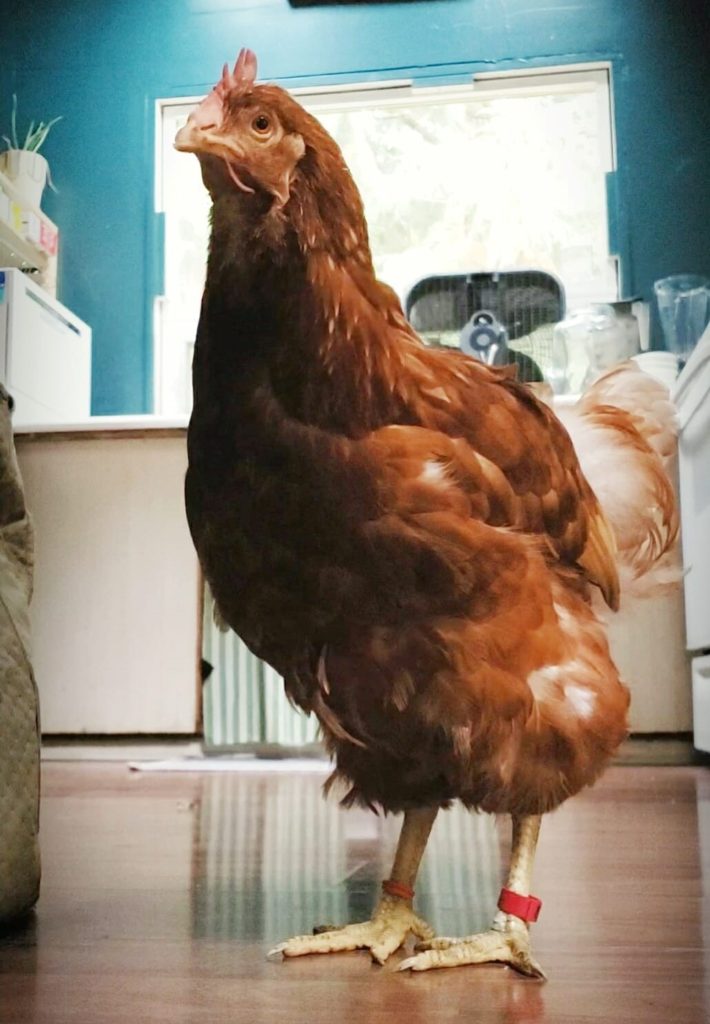Every year in the United States, over 300 million hens are used for their eggs. That’s roughly one hen for each person living in the US. Most of these hens spend their entire lives in small wire “battery” cages, where they don’t have enough room to spread their wings or even turn around. To prevent them from pecking each other out of frustration, they undergo a cruel procedure called “debeaking” in which their beaks are cut off with a burning hot blade when they’re just a few days old, without any painkillers or sedation. These hens live for years in filth and unnatural confinement, much like chickens raised for food — even the so-called “free range” ones. Everything from the lighting in the sheds to the food they’re fed is manipulated to maximize egg production.
Hens that are used for their eggs have been selectively bred and genetically manipulated to be egg-laying machines, producing 200-300 eggs each year. They lay about 20 times more eggs than their wild ancestors, the junglefowl. Near-daily egg laying is biologically unnatural and unsustainable, and these hens suffer the consequences. If they haven’t died from reproductive diseases or cancers within the first few years of their lives, their exhausted bodies stop producing eggs at just 2-3 years old. Once they’re no longer profitable, they’re sent to slaughter where they often end up as pet food.
On top of the atrocities suffered by laying hens, male chicks are a lesser-known victim of the egg industry. Since roosters are worthless to the egg industry, millions of male chicks are killed when they’re just a few days old, either by slow suffocation or by maceration, where they’re tossed into a high-speed grinder alive.
Please consider the egg. You can help save countless chickens from enduring such a horrible life by going vegan.
